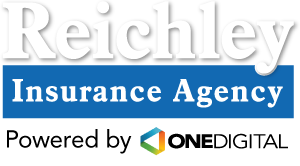Beyond Insurance… Risk Strategies

Someone once said, “The only thing you can count on is change.” When it comes to insurance buying, that is unmistakably true. Today, people have more ways than ever to secure insurance coverage. However, are they getting the coverage they need? Another true statement is, “The more you have, the more significant risks you have.”
The combination of change and risk leads us to the understanding that people should be seeking an insurance partner who understands their changing needs in a risky world, rather than being able to secure a low-cost insurance program. People who have a higher net worth should be primarily focused on protecting assets.
If a lawsuit threatens the lifestyle you have created, you want a partner to stand beside you. You need personal liability insurance options to safeguard your family and assets in the event of personal claims against you at limits that exceed the liability protections provided by standard policies.
Many individuals have unique risks which can include:
- A second home
- Farm or rental income
- In-home business
- High valued homes
- Watercraft
- Foreign travel
- Domestic employees
- Identity theft
You need an insurance partner who can help develop a risk and insurance plan that will manage your risk at a competitive cost. It’s not business as usual any longer.
When Searching for an Insurance Partner, Ask These Questions:
- Does your agent educate you about your risk before trying to sell you a product?
- Is their staff experienced and qualified to manage your needs?
- Is your agent more interested in a relationship as a trusted partner rather than as another insurance client?
- Is your agent committed to work for you rather than for the insurance company?
- Does your agent design a program based on your individual needs and then give you options?
- Does your agent advocate for you through customized analysis of your risk and needs?
- Is your agent committed to leading the claims process to a satisfactory outcome?
- Does your agent have access to sophisticated personal insurance carriers that offer specialty products and personal risk solutions?
Protecting your lifestyle goes way beyond insuring your car or home. Proper insurance has to do with understanding the risks associated with your life and creating a plan to safeguard you and your family’s future. Our society’s way of managing COVID-19 has forever changed the way we work, play, travel, gather information and gather supplies for our daily lives. Many of these changes are just new ways of doing things, however many can create new risks that your current policies do not address completely. Do any of these sound like your new normal?
- More time buying products and services online from home.
- Increase use of home networks for business use.
- Using business owned office equipment at home for your work.
- Work meetings at personal residences or on-line.
- Connecting to open networks for work purposes at restaurants or other places.
- Use of personal vehicles to and from client’s offices.
- Use of personal vehicles for delivery jobs.
- The storage and use of paper documents for work at your home residence.
All these issues and others create a need for a conversation with your agent. Policies are changing to accommodate some needs on a temporary basis while other do not. The best risk management program is a combination of a strong relationship with a well-educated agency that can place and maintain your coverage with excellent insurers at a competitive price. It’s not just getting a few of the above items, it’s about achieving the right balance to get all parts working for you and your family.
“Insurance is not a product, it’s a promise and a trusted relationship”, Perk Reichley.




Your Policy Is Only As Good As Your Agent
/in Agent, Claims, Customer ServiceThe best way to ensure you are getting the best advice and value is to have a trusted relationship with an experienced agent. Like any relationship, communication is the key. A good agent will listen to the customer and offer risk and insurance solutions. There are times when insurance is not the best solution. Again, here are examples:
Only an agent who is interested in your best interests would offer you options that included no insurance. Rather than using any agent to get you an insurance quote, select a qualified independent agent who will collaborate with you and design a risk management program that meets your needs.
We Can Help You Build A Bridge
/in COVID 19, Customer ServiceMost people have some gaps in their personal insurance coverage. We do our best to help our clients understand where these are and provide solutions so that these gaps don’t exist. Having an independent agent help, you find the right kind of personal insurance for you can go a long way in providing you with peace of mind.
Personal insurance is complex, and we are here to help you understand the complex, so you have made an informed and educated decision.
What are Insurance gaps?
Insurance gaps can be areas where you thought there was coverage, but in reality, there is not. It may be that the coverage is not available or is too expensive or you just did not know about it. Gaps can occur if you have more than one agent handling your personal insurance. Between your home, auto, RV or personal umbrella there might be times when one agent thought the other was taking care of the issue. Insurance gaps can include:
These are just a few of the personal insurance issues that can create real problems for you. Call our office for a free review.
While the massive national agencies spend millions on television ads and offer barebones policies, they do not know you. When your needs change or your situation complicates, you don’t want an automated phone tree or cold cyber-agent. You want to talk to compassionate, honest insurance experts – that’s our team. You shouldn’t have to spend hours researching and comparing policies. Let the specialists at Reichley guide you through the complex insurance industry.
Call today to alleviate the worry and get covered – (937) 429-0655.
The New Normal for Insurance Buyers
/in Agent, Business insurance, Customer Service, Insurance, RelationshipsBeyond Insurance… Risk Strategies
Someone once said, “The only thing you can count on is change.” When it comes to insurance buying, that is unmistakably true. Today, people have more ways than ever to secure insurance coverage. However, are they getting the coverage they need? Another true statement is, “The more you have, the more significant risks you have.”
The combination of change and risk leads us to the understanding that people should be seeking an insurance partner who understands their changing needs in a risky world, rather than being able to secure a low-cost insurance program. People who have a higher net worth should be primarily focused on protecting assets.
If a lawsuit threatens the lifestyle you have created, you want a partner to stand beside you. You need personal liability insurance options to safeguard your family and assets in the event of personal claims against you at limits that exceed the liability protections provided by standard policies.
Many individuals have unique risks which can include:
You need an insurance partner who can help develop a risk and insurance plan that will manage your risk at a competitive cost. It’s not business as usual any longer.
When Searching for an Insurance Partner, Ask These Questions:
Protecting your lifestyle goes way beyond insuring your car or home. Proper insurance has to do with understanding the risks associated with your life and creating a plan to safeguard you and your family’s future. Our society’s way of managing COVID-19 has forever changed the way we work, play, travel, gather information and gather supplies for our daily lives. Many of these changes are just new ways of doing things, however many can create new risks that your current policies do not address completely. Do any of these sound like your new normal?
All these issues and others create a need for a conversation with your agent. Policies are changing to accommodate some needs on a temporary basis while other do not. The best risk management program is a combination of a strong relationship with a well-educated agency that can place and maintain your coverage with excellent insurers at a competitive price. It’s not just getting a few of the above items, it’s about achieving the right balance to get all parts working for you and your family.
“Insurance is not a product, it’s a promise and a trusted relationship”, Perk Reichley.
Why We Stopped Selling Insurance and Started Educating our Clients
/in Agent, Business insurance, Customer Service, Insurance, RelationshipsHere is what we like to do before we even say the word insurance. We ask questions to understand your needs better. We share our knowledge about your risks, and we help identify the individual risks you face and start the process of putting together a plan to protect you with a combination of insurance, risk transfer and avoidance techniques.
Our clients routinely tell us that “this is the first time someone took the time to explain this to them”. They feel empowered to control and have ownership of their insurance program.
Building a business populated by satisfied, repeat customers is our goal. This benefits both parties and offers us the opportunity to invest our knowledge and expertise while sharing the relationships we have with community vendors and insurance carriers to benefit our customers. This feels more successful that hitting a sales goal each year.
Insurance is not a product. It is a promise and a trusted relationship. Here at Reichley Insurance Agency, we are not going to sell you something you don’t need. We want to talk to you, determine your needs, and get you covered at the right price.
While the massive national agencies spend millions on television ads and offer barebones policies, they do not know you. When your needs change or your situation complicates, you don’t want an automated phone tree or cold cyber-agent. You want to talk to compassionate, honest insurance experts – that’s our team. You shouldn’t have to spend hours researching and comparing policies. Let the specialists at Reichley guide you through the complex insurance industry.
Call today to alleviate the worry and get covered – (937) 429-0655.
COVID-19 and the New Cyber Challenges
/in Insurance, RelationshipsThe CIOVID-19 pandemic has affected the way we do business in a very significant way. Many businesses are requiring people to work remotely. Employers are finding that having employees work remotely may be the new normal.
COVID-19 has forced us to become more dependent on the internet, as desperate measures, like social distancing, disrupt economic activity and everyday life.
This new way of doing business could mean that employees are collecting client information from home or other places that may not have the same cyber security as an office network. In some instances, employees who are working remotely are forced to use their home computers because they do not have a company laptop.
Top Work-from-Home Cyber Concerns
What Can Employers Do to Reduce the Threat?
Over the last sixty years, we have established a reputation for honesty, high morals, integrity and friendly, professional customer service – pillars of a successful insurance agency. Based upon this foundation, the staff of Reichley Insurance Agency commits to the following mission:
Tips for Working at Home
/in Agent, Customer Service, Insurance, RelationshipsDoes COVID-19 Have You Working From Home?
Due to the stay at home mandate, there are many people who are working remotely these days. It appears this mandate will last at least another month. Many people have thought that working remotely would be great, but working remotely is a double-edge sword. Sure, you get to stay home, but studies show that it can be harder to focus on work.
Remote Workers Need to Be Aware of These Challenges:
How to Make Working Remotely Work for You
We are here to help you with any insurance related need you may have. Please be safe and stay healthy.
Your Personal Insurance and COVID-19
/in Customer Service, InsuranceAs our country continues to manage through the COVID-19 crises, we thought it might be useful to take some time to remind you of the importance of your personal insurance during this time. The coronavirus pandemic should not affect your auto or homeowner’s insurance too much, but there are a few coverages that could be impacted because of the temporary lifestyle change.
Other Heath insurers are likely following suit with these added benefits that can be accessed online directly from home.
Our goal is to be here for you and to help answer any questions you have regarding your insurance. Please feel free to connect with us at any time.
This information seems to be changing and we will keep you advised as this relates to our customers
Another Workers’ Compensation Dividend On Its Way to Ohio Businesses
/in Insurance, RelationshipsEarlier today, Ohio Gov. Mike DeWine announced the Bureau of Workers’ Compensation (BWC) will send up to $1.6 billion in dividends to Ohio employers to help ease the impact of the COVID-19 crisis.
This dividend will allot $1.4 billion to private employers and $200 million to local governments when approved by BWC’s board of directors.
BWC will begin sending dividend checks to employers later this month. This dividend marks the sixth time since 2013 the agency has returned at least $1 billion to employers following strong investment returns, falling injury claims and other operational efficiencies. As with past rebates, employers are free to spend the funds as they wish.
While workers’ compensation in Ohio is a monopolistic system, it continues to be an area where your commercial clients have been positively impacted by BWC’s repeated rebates the past seven years. We encourage you to continue to explore how you can become an advisor to your clients on their Ohio workers’ compensation needs by learning more about OIA’s Group Rating and Retro programs.
Reprinted from Ohio Insurance Agents Association
Carolyn Mangas
COVID-19
/in UncategorizedEffective March 19th, Reichley Insurance Agency will no longer be accepting in-person customer visitations until future notice. All other business will continue as usual. Please use our Convenient Drop Box to the left of our door for payments. Our email and phone lines remain open and we are ready and available to provide you with the Super Outstanding Service you deserve.
Take care of yourselves and God Bless.
www.Reichley
COVID-19 Statement
/in UncategorizedCOVID-19 Statement
The global coronavirus outbreak is slowing commerce, and we are still assessing the full business impact on our agency. Thus far, we have not had any disruption of services. We are open for business and are here to help you should you require it.
We strongly recommend everyone follow the CDC’s health and safety protocols.
We are actively monitoring the novel coronavirus (COVID-19) updates from the World Health Organization and the U.S. Centers for Disease Control and Prevention, and will continue to respond based on the best advice of governments, public health authorities and medical professionals.
We continue to monitor the situation and are taking appropriate steps to safeguard our employees and visitors to our office.
We stand together with you through this tough time.